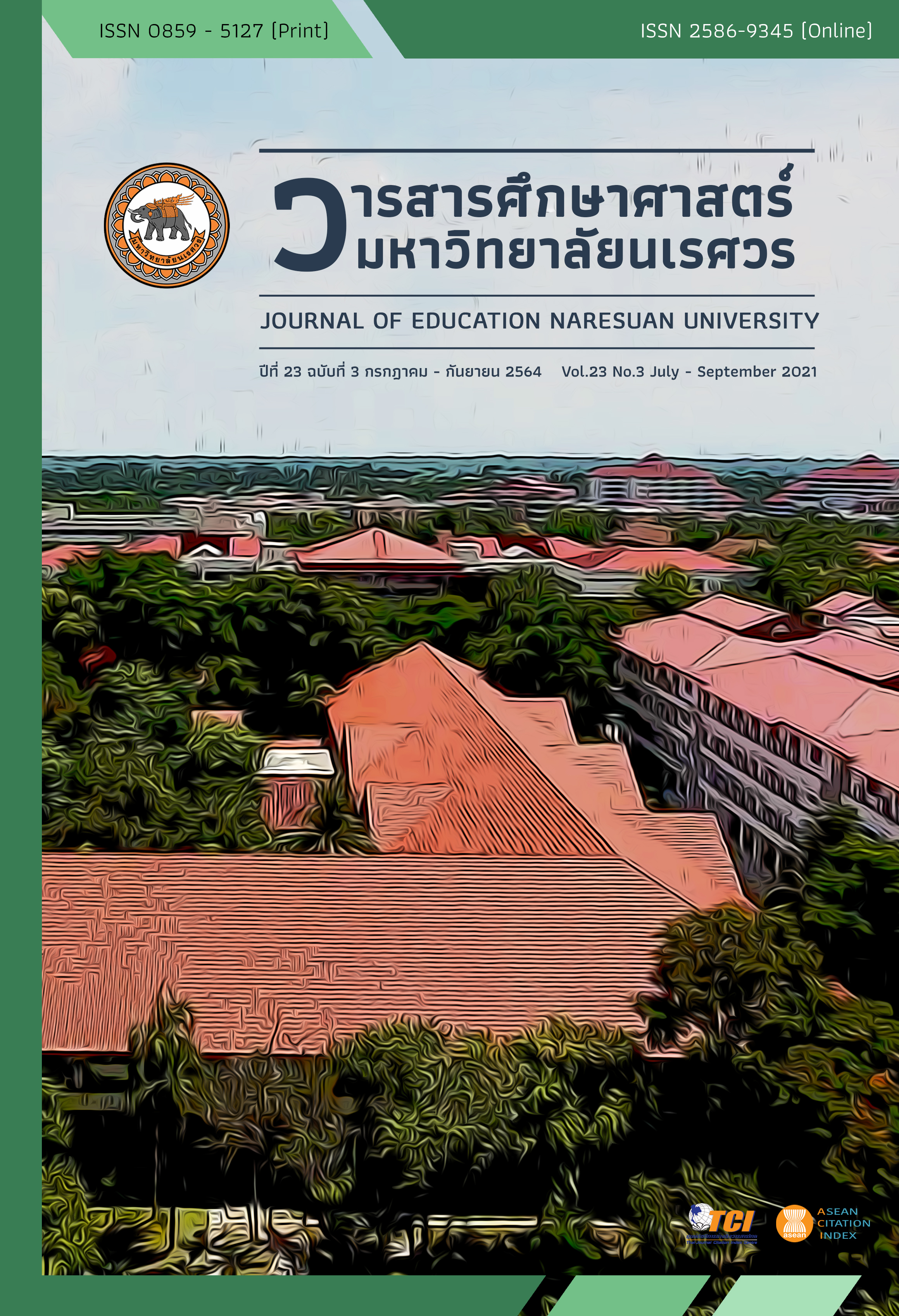THE DEVELOPMENT OF LEARNING ACHIEVEMENT AND ATTITUDE TOWARDS MAJOR BUDDHIST FOR MATTHAYOMSUKSA 2 BY USING GAME BASE ON BRAIN - BASED LEARNING (BBL) การพัฒนาผลสัมฤทธิ์ทางการเรียนและเจตคติต่อการเรียนวิชาพระพุทธศาสนา สำหรับนักเรียนชั้นมัธยมศึกษาปีที่ 2 โดยใช้เกมตามแนวการเรียนรู้โดยใช้สมองเป็นฐาน
Main Article Content
Abstract
The Objectives of this research were to development of learning achievement and attitude towards major Buddhist for Matthayomsuksa 2 by using game base on brain-based learning (BBL). The sample for this research consisted of 48 Matthayomsuksa 2 students of Bansuanjananusorn School. The sample was randomly selected by using Cluster random sampling method. The research instruments consisted of lesson plans in topic of “The Four noble Truths”, Buddhist Learning achievement test, Attitude towards Buddhist test. The data were analyzed by using the t-test for Dependent samples. The analyses of experimental data were summarized as follows:
1. The post-test mean scores of Buddhist learning achievement of Matthayomsuksa 2 students after using game base on brain-based learning (BBL) were statistically and significantly higher than pre-test mean scores of that at the .05 level (t = 11.00, p = .00).
2. The post-test mean scores of Buddhist learning achievement of Matthayomsuksa 2 students after using game base on brain-based learning (BBL) were statistically and significantly higher than 70 (t = 1.72, p = .04).
3. The post-test mean scores of attitude towards Buddhist of Matthayomsuksa 2 students after using game base on brain-based learning (BBL) were statistically and significantly higher than pre-test mean scores of that at the .05 level (t = 3.26, p = .01).
Article Details
The owner of the article does not copy or violate any of its copyright. If any copyright infringement occurs or prosecution, in any case, the Editorial Board is not involved in all the rights to the owner of the article to be performed.
References
Academic and Educational Standards. (2008). Core subjects: Social learning religion and culture (complete edition). Bangkok: Agricultural Cooperative Federation of Thailand. [in Thai]
Bunsong, J. (2015). Effects of brain based learning activities on achievement and creativity of grade eight students (Master thesis). Songkhla: Prince of Songkla University. [in Thai]
Institute for the Promotion of Teaching Science and Technology (IPST). (2012). Professional science teacher effective teaching methods. Bangkok: Interdisciplinary Supply. [in Thai]
Khammani, T. (2012). Science of teaching. Bangkok: Chulalongkorn University. [in Thai]
Kanchanarakphong, S. (2006). Innovative education a guide to assessing thinking skills in basic education curriculum B.E. 2544. Bangkok: SE-EDUCATION. [in Thai]
Lertwitcha, P. (2010). School quality assurance manual go to school BBL school model. Chiang Mai: Tarnpanya. [in Thai]
Ministry of Education. (2015). Basic Education Curriculum B.E. 2551. Retrieved August 24, 2016, from http://math.ipst.ac.th/wpcontent/uploads/2015/PDF/Curriculum%202551.pdf [in Thai]
National Institute of Educational Testing Service (Public Organization). (2008). The basic statistics results of the national basic education test (O-NET) grade 10. Retrieved from https://www.niets.or.th/th/content/view/1741 [in Thai]
Office of the National Economic and Social Development Board. (2016). The 12th national economic and social development plan (B.E. 2560-2564). Bangkok: The Office of the Prime Minister. [in Thai]
Phonkul, C. (2011). Teaching the thinking process and its application (2nd ed.). Bangkok: V Print (1991). [in Thai]
Photun, A. (2016). The effect of teaching using games comprehension basing on brain-based learning upon learning achievement and attitudes towards English subjects learning of prathomsuksa 2 students (Master thesis). Nakhon Sawan: Nakhon Sawan Rajabhat University. [in Thai]
Phrapromkhunaporn. (2009). Buddhism revised and expanded (15th edition). Bangkok: Sahadham. [in Thai]
Saiyos, L., & Saiyos, A. (2000). Measurement of psychosocial. Bangkok: Suwiriyasan. [in Thai]
Soontornroj, V. (2007). Innovations in backward design. Bangkok: Chang Thong. [in Thai]
Srilasak, R. (2016). A study of problem solving ability and learning achievement with brain based learning in the code: s16104 social study subject (citizenship) grade 6 students at the Demonstration School Roi Et Rajabhat University (Master thesis). Khon Kaen: Khon Kaen University. [in Thai]
Srisuantang, A. (2013). The Development of learning outcomes on mix-problems of fourth grade students taught by brain-based learning (BBL) together with KWDL technique (Master thesis). Bangkok: Silapakorn University. [in Thai]
Suwannamajo, L. (2013). Comparison of learning achievements on interesting culture and emotional quotient’ among prathomsuksa 2 students through learning management using the brain–based learning approach versus the technique jigsaw II cooperative learning approach (Master thesis). Nakhon Phanom: Nakhon Phanom University. [in Thai]
Tomvongpol, N. (1999). The effects of Trisikha teaching method on Yonisomanasikarn thinking and learning achievement on Dhamma principles in the course soc 0412: Bhuddism of mathayomsuksa VI student at Seekun (Wattananunuppathum) School in Bangkok (Master thesis). Nonthaburi: Sukhothai Thammathirat Open University. [in Thai]
Treerat, T. (2010). Brain - based learning: Wangmaipattana School. Retrieved from http://www.wangmai.cpms.net/index1.php [in Thai]


